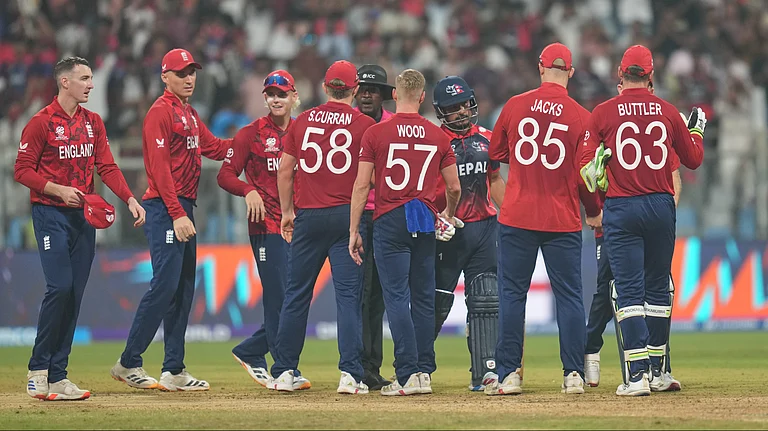Dr Madhumita Puri warns us that once she gets started, she wont stop talkingabout her school and her children. And, pleasantly enough, she keeps her word. At first,her enthusiasm might seem a little misplaced considering the debilitating mentaldisabilities of her wards, but you soon discover that for her they are as capable ofchanging their destiny as anybody else. This ones a little traumatised becausehis father has recently remarried...its something of an ultimate betrayal forhim, she says, ruffling the hair of a young boy whos trying to make a shoppingbag out of an old newspaper using glue. Deepak was a bit unmanageable when he firstcame here, she says of another as she pushes his errant foot off a padded chair.And Anjali here is one of our student-teachers, she says, looking towards ayoung girl who is transferring her weaving skills to Deepak. I first met Taran whenhe was just a few months old. And I have literally seen him grow, she says, pointingtowards another teenager struggling to shred old newspapers along with a bunch of otherkids.
Dr Puri is infinitely fond of these 30-odd children who come to her vocational schoolto learn some employable skills (reservation is usually in favour of people with physicaldisabilities). Here, they learn to weave basic warps and wefts, make paper out ofdiscarded cloth, lamps out of clay and, in the process, remould their lives. They alsotake part in an annual theatre workshop. Weve realised that its a greatpositive factor for them. The stage experience really gives them the appreciation that isotherwise denied to them, she explains. Last year, the kids put up Ramp Ka Raja, adesi take on the Emperors New Clothes, and did it well enough before an audience of400with some help from musicians like Indian Oceans Susmit Bose. These are, ofcourse, special children, to use the politically correct parlance of our day.In clinical terms, these youngsters (mostly belonging to the 16-23 age group) have aspectrum of mental disabilities: there are spastic children, children with low IQ and eventhe dreaded Downs Syndrome. But at the Raghudev Memorial School of VocationalStudies in Delhis North Campus, these children are now preparing to earn somesemblance of independence in their lives. And as a result, some respectability in theirmiscoordinated personal worlds. Self-sufficiency is a very debatable word in theircase, says Puri, who holds a PhD in psychology and has worked at aiims, forsome of these children its about managing basic functions. She knows thedifference because most of these teenagers have graduated from Prabhat, another alliedschooling facility for kids like these.
Prabhat is where they join up as toddlers. This school is just 15 minutes away from itstwo-year-old sibling of vocational learning. At the school, they are classified accordingto their abilities and given the rudiments of education. With a staff of 15, whichincludes physio and occupational therapists, Prabhat teaches these children what a formalschooling is incapable of providing them. Closeted in a small classroom that could bepolitely described as dilapidated, they catch up with skills their sympathetic buthelpless households didnt pass on. At home many of them are left to their owndevices. They are treated with sympathy but thats not what they need, saysPuri. That is why at both the schools parents are made to pay a token fee of Rs 200,sometimes it is just 10 rupees or so when they cant afford more. The feeis intended to help bring about a realisation that the school hours arent about goodriddance but actually making good despite severe disabilities.
Personally for Puri, this association with its almost decade-old drive to empowerspecial children has generated a greater sensitivity. Im more tolerant ofother peoples faults and idiosyncrasies, she says. Ditto for her 13-year-oldson and other child volunteers. Their work, indeed, makes them feel that they are thespecial ones. For sponsoring children, contributions or volunteering to help out, contact:011-3982432/2923559 or write to Dr Madhumita Puri, Cottage 15, Oberoi Apartments, 2 ShamNath Marg, Delhi 54. Or e-mail vijag@hotmail.com or mpuri@vsnl.com.





















